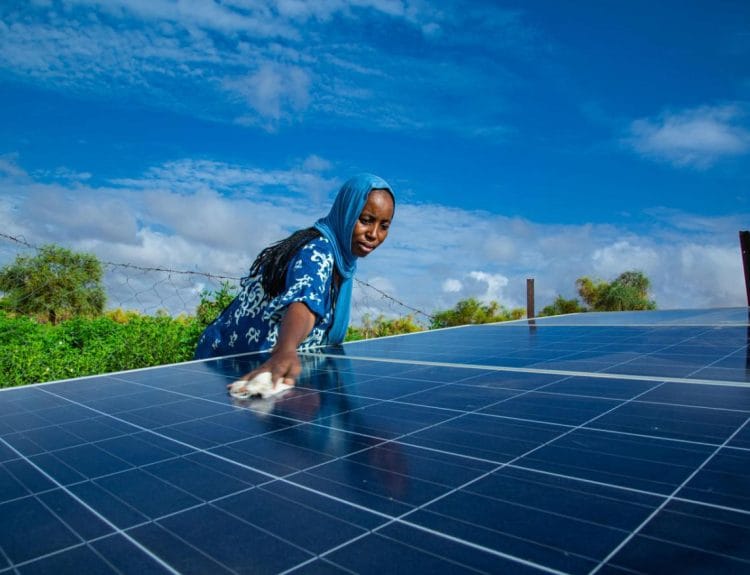We must free half of Arabic societies from constraints that prevent women from contributing to the prosperity and growth of Arab economies, and shield the countries of the region against risks and causes of chronic underdevelopment.
Achieving equity for women is not just a matter of morality or politics; nor is it solely related to the need for social justice, achieved through a gender approach to social issues. In fact, it is an economic necessity par excellence.
Indeed, societies that succeed in more fully and effectively integrating women into the workforce and promoting them to leadership positions achieve significant economic gains, both quantitative and qualitative, when compared to societies that lag behind in achieving equality. Additionally, a study conducted by Catalyst, an organization that has been working for decades with large companies to achieve gender parity within administrations and businesses, revealed that Fortune 500 companies promoting women to leadership positions achieve shareholder returns 35% higher than companies with the lowest rates of female participation in leadership positions.
This means that women bring different managerial skills and qualifications to leadership, enriching business management with added value that translates into additional profits for shareholders. However, this does not mean that the benefits women bring when they reach a leadership position are intrinsic abilities they have as women, but rather that they bring a unique added value to their work, because of their distinct social, economic, and cultural experience in society. This experience is forged through a long process of dealing with a cultural environment marked by stereotypes and patriarchal and sexist "norms," a challenge that gives a particular flavor to success and results in unique leadership skills, and brings forth significantly enriching management skills.
In a report titled "Women as Levers of Change: Unleashing the Power of Women to Transform Male-Dominated Industries," Foreign Policy Analytics states that "top-quartile companies with the highest percentage of women in executive management roles are, on average, 47% more profitable than those in the bottom quartile." Additionally, companies that adopt a gender integration policy reduce the negative impact on the climate, significantly develop their social responsibility, and create an internal culture based on inclusion, diversity, and parity (ibid.). These aspects benefit productivity, customer relations, human resources motivation, and overall profits.
On the other hand, a report by the McKinsey Global Institute entitled "How Advancing Women's Equality Can Add $12 Trillion to Global Growth" concludes that it is possible to add $12 trillion to global gross domestic product (GDP) by 2025 through improving the integration of women in the labor market and achieving gender parity, mainly by reducing gaps in leadership positions and salaries, among other measures. Countries and companies that invest in integrating women into the workforce, that do not perpetuate wage gaps between men and women, and that give women opportunities to hold positions of responsibility and management, will observe remarkable development in their GDP.
GDP grows when capital goods, labor markets, technology, and human capital develop. In this regard, many countries, particularly in the Arab world, rely on capital goods (i.e., investment via fixed capital) and imported technological solutions, but they do not, with few exceptions, take the appropriate measures to open the labor market to women nor invest in the quality of human capital in general. The rate of women's integration into the labor market in Arab countries does not exceed 19%, compared to the global rate of 47%, and that of low- and middle-income countries, which is 46%, according to the study by the Arab NGO Development Network, "Drivers of Low Female labor Force Participation in the Arab Region - Political-Economy vs Culture
This means that Arab countries will not see their economies develop at a level comparable to Western, Asian, African, or American countries, as four-fifths of women in the Arab world do not participate in the economic cycle. The factors are multiple, including cultural, legislative, and political sources of inhibition and hindrance. But in my opinion, the majority of the factors are economic. When women are not entrusted with higher responsibilities in public administration, the injustice in terms of promotion has a negative impact on women's salaries. Thus, even in public administrations that are supposed to treat men and women equally, discrimination is structural: basic salaries are similar, but more men benefit from promotion opportunities than women, creating a flagrant wage injustice.
The private sector in the Arab world knows even greater injustice, where women are preferred over men for certain manual jobs (such as textiles, agribusiness, etc.), but their salaries are below the minimum wage and they are not promoted to supervisor or line manager positions. This makes the attractiveness of the private sector (a source of employment in all free economies) low in Arab countries. Additionally, technical jobs in sectors requiring advanced engineering skills are reserved for men rather than women; not only are women directed towards the service sector, but the teaching of science, technology, engineering, and mathematics (STEM) is considered a men's affair in many countries of the global South, including the Arab ones. Therefore, the reduced presence of women in technical leadership positions is due to the weakness of the supply (number of female engineers, for example), as well as the demand (the belief that men are more suited for complex technical jobs)
Source of the article: entrepreneur.com






